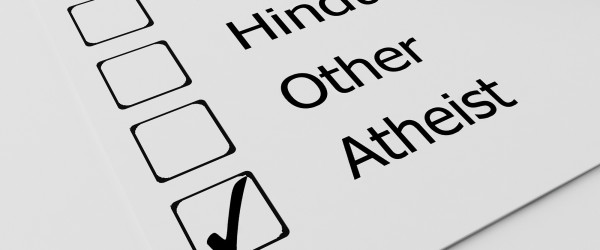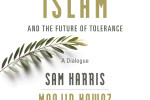At first Soumaya Ghannoushi’s article “Muslim women and the militant atheists” caught my eye; later, it became part of my very entangled personal thoughts on the intersections of gender, religion and secularism. Ghannoushi presents a critique of liberal-atheists, who, very much like right-wing Westerners, have had much to say about hijab, Muslim women and Islam. She explains,
“The new atheists are in reality heirs to the worst tendencies within modern western discourse, with the essentialism that shaped classical Orientalism’s negative, derogatory and arrogant perception of others, dismissed as inferior; and its positivism permeated with self-certainty, dogmatism and missionary zeal.”
The author speaks of Richard Dawkins as the epitome of the “liberal-atheist.” Her article has led me to think about my very varied experiences with Muslim “conservative” and “progressive” communities, as well as my own atheist background.
Let me explain. I just spent a lot of “quality” time with my atheist-secular-liberal family. My family defines itself as atheist because of the very purposeful process they went through to break away from the Catholic Church. They identify as secular because they support legal secularism. And many of my family members self-describe as liberal in the sense of social liberalism (not economically). I was raised with no religion in a country where public secular education is not only mandatory, but a constitutional right. My family today continues to stand against religion in public spaces. Thus, my conversion to Islam has been as challenging to me as it has been to them. We do not see eye-to-eye on the accommodation of minorities at work and in school, we do not share the same views of what it entails “religion” vs. “culture” (for me Christmas is religious, while for them it is cultural), and we just do not share the same values when it comes to the whole “women’s rights” discussion (I keep telling my dad he is behind on his intersectional feminism).
This is the problem with trying to generalize among what the author calls “atheists”: the reality is that atheist experiences are at least as varied and diverse as those of Muslims.
As someone who has been so connected to atheism for so many years, I can tell you that being an atheist does not entail being a jerk, which in my view is what many “prominent atheists” are. And in my mind much of what Ghannoushi presents has more to do with white and male privilege than it does with actual atheism or liberalism. In fact, all of her examples, except that of Marie LePen, are those of white males. The intersection of whiteness, masculinity, atheism and liberalism proves deadly because, in this day and age in the West, these are sites of privilege. The first people to be affected by someone else’s privilege and their access to power are often women, and that is no exception in Muslim circles.
Take for instance discussions between the elites of “conservative” and “progressive” Muslim groups (and I use the terms very loosely). Both sides debate the hijab, the niqab, assimilation and integration (particularly as represented by women) and the rights/responsibilities of women, it is very seldom that we find as many discussions related to men. I have personally been heavily policed in both spheres. In one the imam would tell me that I am not “properly” covered, in the other I would be told that hijab is not “mandatory,” therefore, I should not wear it. Atheist-liberal circles (which in the context of the West also tends to connote economic liberalism) are not exception to the policing.
The author further says, “To them [atheist-liberals], the simple piece of cloth on my head symbolises all that is wrong with Islam and the Muslim world. We Muslim women are thus guilty of every lunacy committed in the name of our faith, of crimes we did not perpetrate and sins we did not commit.” This is true, but not only of Muslim women. Most of the figures she speaks of have in common not only their islamophobic attitudes, but also their racist, anti-immigration and anti-women stands. Those are not religious positions, they are political ones, and they speak to privilege.
Ghannoushi’s article briefly mentions misogyny and the treatment of other minorities (in this case Aboriginal peoples) under the banner of atheism and secularism, but fails to go a step forward to discuss how atheist/secular privilege is constructed and how it intersects with other systems of oppression.
I would never say that atheism and secularism cannot oppress others, because clearly they can. Canada has its own examples of Quebec’s Charter of Values and Ontario’s banning of niqab in a sexual assault case. But it can only do so from a position of privilege and power, like any other doctrine and religion has done. Beyond atheism, we need to speak about the intersections of privilege. In my view our conversations as Muslims need to get more complex, we need to go beyond just addressing how atheists/Christians/secular groups perpetuate Islamophobia. And this is not to say that islamophobia isn’t real or relevant. On the contrary, it is such a well-spread experience that we need to talk about the intersections of a variety of systems such as race, class, gender, religion and more. We need to recognize that islamophobia interacts with other systems and affects Muslims differently, that is why we also need to talk about anti-blackness and racism within Muslim communities.
Ultimately, Ghannoushi’s piece, “Muslim women and the militant atheists,” was a reminder of the ways in which generalizations are not only plain wrong, but also dangerous. The author concludes, “I refuse to have Salafi zealots dictate to me how to live, just as I firmly object to bigoted Islamophobes interfering in my personal choices, of what I should and should not wear.” And she is right; we should all refuse to be policed by others. However, it is too easy to critique people like Dawkins without insightful analysis of privilege. The challenge may be that opening up those discussions also entails an overdue analysis of white privilege within our own communities of colour or religious privilege within our own faith communities… The question is, are we willing to open these debates up? And if so, how are we going to address the abuses of power and privilege stemming from those that are not Dawkins, Harris or LePen, but from within our own communities?


